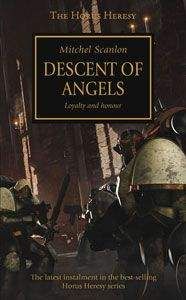Jonathan Howard - Johannes Cabal: The Fear Institute
‘We meet again,’ Cabal said, ‘I’m fairly sure. What cryptic truths have you come to bore me with this time?’
The ghoul settled down on the grimy rock, crossing its legs with practised ease despite the way its knees bent back like a dog’s. ‘The last but one, Johannes Cabal.’ It fell silent, watching Cabal with its head cocked to one side.
‘Well?’ said Cabal. ‘If you could buck up and illuminate my ignorance I should be very grateful. Actually, if you want me to be very, very grateful, I would appreciate being led from here to the waking world. This darkness is clearly with your territories, so it shouldn’t be very difficult for . . .’
But the ghoul was slowly shaking its head. It was hard to tell if it was grinning: the line of its muzzle and the flickering light made things uncertain. ‘It is not for me to tell Johannes Cabal what the truth is. Johannes Cabal will see for himself very soon.’
‘What? What do you mean? Am I intended to deduce it? Play Twenty Questions? This is ridiculous.’
And it was ridiculous. The more he thought about it, the more ridiculous it seemed. Here he was, in the depths of an abyss, within the bowels of an uncharted island, in an alien sea, on a different plane of existence, surrounded by monsters, playing guessing games. It was ridiculous, and soon he couldn’t see anything else but how ridiculous it was, and that was when he started laughing. The laughing started with giggling, then full-mouthed guffawing, and it grew louder and more hysterical as the ghouls watched in silence and, perhaps, in sadness.
Within Cabal, he felt panic as the tightly held reins that had steered him from insanity on so many occasions suddenly flapped loose and useless. He felt his mental discipline turn to water as it bore him to the lip of another abyss. This abyss descended into far darker places than he had ever experienced before, and it was one from which even the most accomplished spelunkers would never return.
And then he heard his own laughter, shrill and humourless, gulping breaths beneath it. He heard those half-swallowed sounds and he recognised them, and the fear blossomed within him like flame. The Fear Institute had been right all along, it seemed. Here truly was the Phobic Animus, or his, at least. Where Nyarlothotep had failed, the ghouls had succeeded.
He dropped his torch and fell to his knees, and then to all fours. His hands were before him, and – would he had worn gloves to save him from that sight! – he saw the fingers were perhaps a little too long, the nails a little too pronounced, the skin a shade too grey. He stared at them, making despairing little barking sounds under his breath, and so was unaware when the leader of the ghouls crept close and sat by him.
‘Do not fear, Johannes Cabal,’ it said, though not in any human tongue. ‘We shall look after you. Now you are family.’
Surviving fragments of Cyril W. Clome’s Manuscript for The Young Person’s Guide to Cthulhu and His Friends: No. 5 An ABC
A is for Azathoth, all mindless in space,
B is for Bugg-Shash, a god with no face.
C is for Cthulhu, the Father of Screams,
D is for Deep Ones, who watch while he dreams.
E is for Elder Things that lived long ago,
F is for Fire Vampire, they don’t like the snow.
G is for Ghouls, who look much the same,
H is for Hastur, but don’t say his name.
I is for Ithaqua, you’ll freeze to the bone,
J is for Juk-Shabb, of whom little is known.
K is for Kadath, lost in cold wastes,
L is for Lloigor, of decadent tastes.
M is for Mi-Go, clever if fungal,
N is for Nyarlothotep, not prone to bungle.
O is for Oorn, a mollusc from Hell,
P is for Pluto, called Yuggoth as well.
Q is for Q’yth-az, a strange deity,
R is for Rhogog, who looks like a tree.
S is for Shub-Niggurath, her prey are dismayed,
T is for Tsathoggua, whose needs are depraved.
U is for Ulthar, cat killers be warned,
V is for Vhoorl, where Cthulhu was spawned.
W is for Witch House, down Old Arkham way,
X is for X’chll’at-aa, which is tricky to say.
Y is for Yog-Sothoth, who’s everywhen and where,
Z is for Zoth-Ommog, Great Cthulhu’s third heir.
Read this right through, and then you may see, That
(The MS halts abruptly at this point. The author remains largely missing, but for his finger- and toenails, and his eyes.)
Chapter 17
IN WHICH CABAL EXPERIENCES OMOPHAGIA, ANNOYS THE VATICAN, AND ENDURES MUCH
The physical transformation was rapid, the mental one slow. More than once, Johannes Cabal wished that the reverse had been true. He sat in the darkness, chewing on the haunch of a newspaper proprietor who had just been buried a day or two before. The meat was rich with avarice and mendacity, rendered salty by the crocodile tears of his heirs. Cabal had balked at eating human flesh at first, despite the rising appetite for it within him. The leader of the ghouls had come to him then and pointed out the obvious truth that most people were little more than dumb animals and that, in any case, this could be regarded as a form of recycling and therefore was terribly sensible as well as delicious. Cabal had still been reluctant, but then they had brought him best joint of archbishop and, after that, he had no problems at all.
If the dietary changes were eventually acceptable, the physical ones were less so, and the inevitable mental degradation concerned him most of all. The ghouls were not stupid – they were about as intelligent as an average human – but their intelligence rarely wavered much higher or lower than that, and the thought of being reduced to merely average human intelligence appalled Cabal. Indeed, if he were to be honest with himself, it terrified him.
Less dismaying than the cannibalism (though, as he rationalised it, he was no longer truly human and therefore no cannibal), but almost as troubling as the imminent collapse of his mental faculties was the nudity. Ghouls had little use for clothes, a mode that Cabal was sure he would not adopt. As time passed – and in the eternal darkness beneath the worlds, he had no idea how much time that meant – his garments grew constrictive and he felt intolerably swaddled and contained within them. He shed them in an isolated tunnel, and left them there, neatly folded, the last memorial to Johannes Cabal.
It should hardly have surprised him, this change. It was not even unknown in the history of his profession. The basic precepts of necromancy involved hanging around graveyards, tinkering with corpses and inevitably having dealings – friendly or otherwise – with ghouls. Given that the triggering events for a ghoulish transformation are psychic rather than material and include an interest in human cadavers, an empathy if not necessarily a sympathy with ghouls, and the ingestion of human remains, Cabal could only conclude that he should have washed his hands more thoroughly between dissections and lunch. Somewhere along the way, he must have inadvertently enjoyed a morsel of meat that had not come from the butcher. It served him right for eating in his laboratory. Still, it could have been worse. He’d only changed species instead of, say, picking up hepatitis.
So, he sat with the others in a lightless cavern, chewing a media tycoon’s thigh and wondering what would become of him. He had failed. It had always been a possibility, but he had imagined the path would be abruptly halted by his death. It had never occurred to him that he might be turned aside from it, watching helplessly as potential success paled into certain failure. He looked at the others scattered around, industriously rationing out parcels of stolen meat among themselves. He didn’t even need visible light to see them. Everything was limned in a strange and beautiful incandescence that showed details in the most mundane things that he had never dreamed might be there. This was a gift of his new physiology and, it was true, this he did not mind so much.
‘But,’ meeped a voice, ‘you are not happy.’
Cabal turned to see the leader squatting nearby, watching him with calm interest. ‘No,’ he replied. ‘I am not happy. I did not complete my work, and soon I will not even be able to remember why it was important to me.’
‘You will,’ laughed the leader, a sound like a choking terrier. ‘You will remember.’
‘But I won’t want to.’
‘You are so sorry for yourself. All your power and knowledge and books, and you are sorry for yourself. We have heard so much about Johannes Cabal. A clever man. A clever man. But sorry for yourself.’
Unused to being chastised, least of all by a creature that used crypts and tombs as All You Can Eat buffets, Cabal snapped, ‘The process is irreversible. Everybody knows that.’
‘Oh, yes,’ said the leader, nodding understandingly. ‘Everybody.’
‘Yes. Everybody. Well, except for Culpins, but his theory of countermorphic residual transfiguration pertained only to lycanthropes, where the process is essentially reversible in any event, not this sort of transformation where, once the new morphic form is achieved, it is retained.’
‘Achieved,’ said the leader, nodding. It looked off into the cavern, apparently already bored with the conversation. ‘Retained.’
‘Exactly so,’ said Cabal. It was nice to use his intellect. It was like looking over the old mansion he had grown up in before being permanently evicted and spending the rest of his life in a small studio flat. ‘Once the full morphotypical state has been . . .’ He paused. ‘The destination is final, but the journey . . .’ He leaped to his feet, and wobbled slightly. His knees were midway through the transformation of bending backwards to bending forwards, and currently bent both ways, which was good for yoga and bad for almost everything else.
‘But the journey may be aborted! Quickly! Tell me! How much longer before I am entirely a ghoul? Days? Weeks? Months?’
The leader looked sideways at him. ‘You do not like being a ghoul?’
‘No. I don’t. No insult intended, but I have plans, and eating people for eternity isn’t among them.’
The leader looked at him fully. Then it grinned the maddog grin that ghouls do so well, exposing every fang it had. ‘That is fine, and we are not insulted. You are Johannes Cabal.’ It gestured at the others. ‘We have enough numbers. There are lots of ghouls, but only one Johannes Cabal. You have at least six weeks, Johannes Cabal. At most, eight.’
Cabal’s initial enthusiasm abated a little in the face of what he needed to do, and the time in which he had to do it. ‘A stabiliser elixir won’t be easy to synthesise. I’ll need a laboratory, chemical reagents, books.’
The leader made a dismissive gesture with a paw. ‘We steal bodies. My people, we have stolen three dead popes. The Vatican was very cross. Glass things, chemicals, books, they will be no trouble. Much easier than dead popes.’
‘Why on Earth did you steal three dead popes?’ asked Cabal.
‘First, to make the Vatican very cross. That was funny. Second reason, delicious.’
Considering the ghouls’ bad reputation, Cabal had found them astonishingly affable creatures: when the leader gathered them together to tell them that Cabal was going to attempt to stop his own transformation, they were not insulted, and when it called upon them to help in any way possible, they were happy to do so. If his life had been a little different, Cabal concluded, being a ghoul really wasn’t so bad. While they were intellectually stunted, at least by his standards, their aesthetic senses went unblunted. He had discovered one ghoul painting a study of a London Tube station, in which ghouls watched the inattentive commuters on the platform from the shadows of the tunnel. The execution was exquisite, even if the subject matter was not. As a race they were mutually supportive and sanguine in their outlook. Previously Cabal had always reckoned them to be rivals in his graveyard harvests, nuisances at best, dangers at worst. Now, however, he saw them for what they were, stoic opportunists, and he respected them for it. Should his efforts over the next few weeks prove successful, he would be far more tolerant of their activities, and never shoot one again. Unless really irked.
First, it was necessary to possess a copy of the thesis, published to universal dismay by Erast Culpins, renowned lycanthropologist, son of a Russian émigré and a Kentish haberdasher, and now a permanent patient of Brichester Asylum. This the ghouls stole, in an excess of mischief, from the Vatican’s very own Index Librorum Prohibitorum. Apparently, the theft made the Vatican ‘cross’. Cabal didn’t care if it made it livid, just so long as he had a copy.
Flicking as quickly as his increasingly long and distressingly rubbery fingers could manage it, Cabal disregarded the other artefacts of Culpins’s peculiar genius – consisting of crude pictures of women bathing amid unnecessarily Byzantine plumbing – and concentrated on the fragmentary references to the metamorphic process. Culpins’s terminology was imprecise and as mutable as his subject, but over the period of fifteen precious days, Cabal succeeded at shaking out the seed of the idea. On the sixteenth day, Cabal drew up a shopping list, and the ghouls were dispatched to gather the items therein requested. They went joyfully, apparently enjoying some petty larceny in their lives to make a change from the drudgery of workaday grave robbing.
There was a rash of thefts not only across the Earth, but across its history, and across the histories of other Earths and counter-Earths, and Earths that never should have been, and Earths that never shall be, as the ghouls happily voyaged through strange dimensions to play in Cabal’s scavenger hunt. They came back, eventually, with many of the things he had requested, some things similar to those requested, and quite a lot of things they had just taken a shine to in passing.
‘Another dead pope,’ said Cabal, to one such returnee. He peered into the sack again and sighed. ‘Though this one shows signs that he wasn’t dead before he was folded up and put in here. I imagine the Vatican was quite cross about this, was it?’ To which the ghoul nodded happily.
As Cabal worked at putting together a laboratory down in the ghoulish caverns, he would sometimes turn to find the ghoul leader there, hunkered down in the shadows, watching his progress in silence. Cabal had noted that the leader was also changing in strange ways, his speech becoming simpler and more like that of the others in the pack. This, he gathered, was because he had once been a man of great intellect himself, but that the steady erosion of his humanity had reached even this last bastion as inexorably as an incoming tide. The ghoul didn’t seem to be so very concerned about it, so Cabal never broached the subject.
‘It’s coming along,’ Cabal told him. ‘I should be able to start experimentation soon.’ He paused in unpacking a condenser tube from its box, stolen from the chemistry lab of a small boys’ public school in Hampshire, and turned to the leader. ‘I am appreciative of all your help in this enterprise, sir, but I must know: why exactly are you doing so?’




